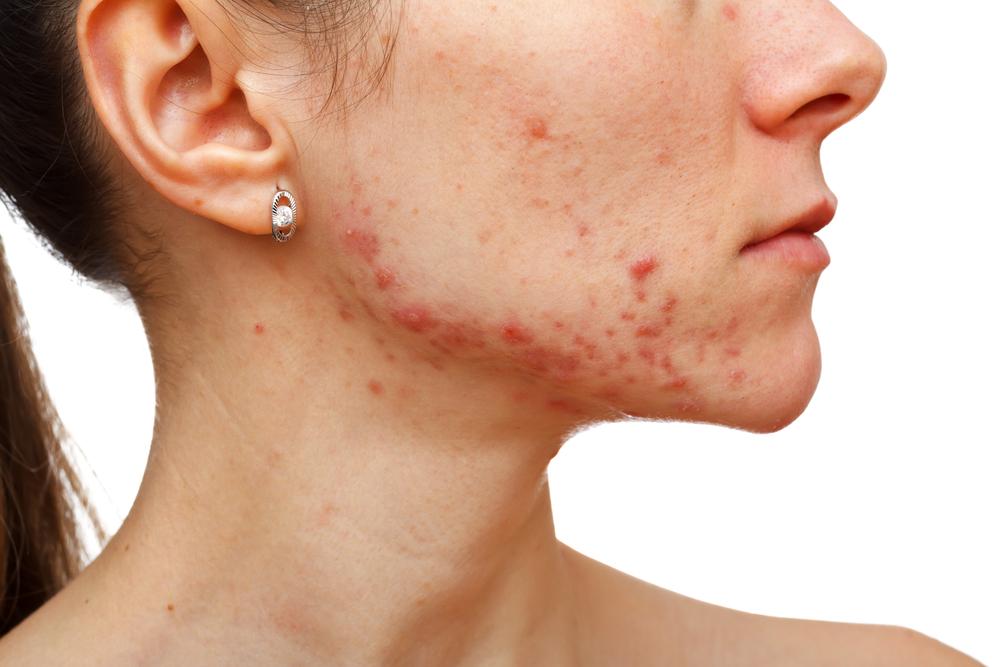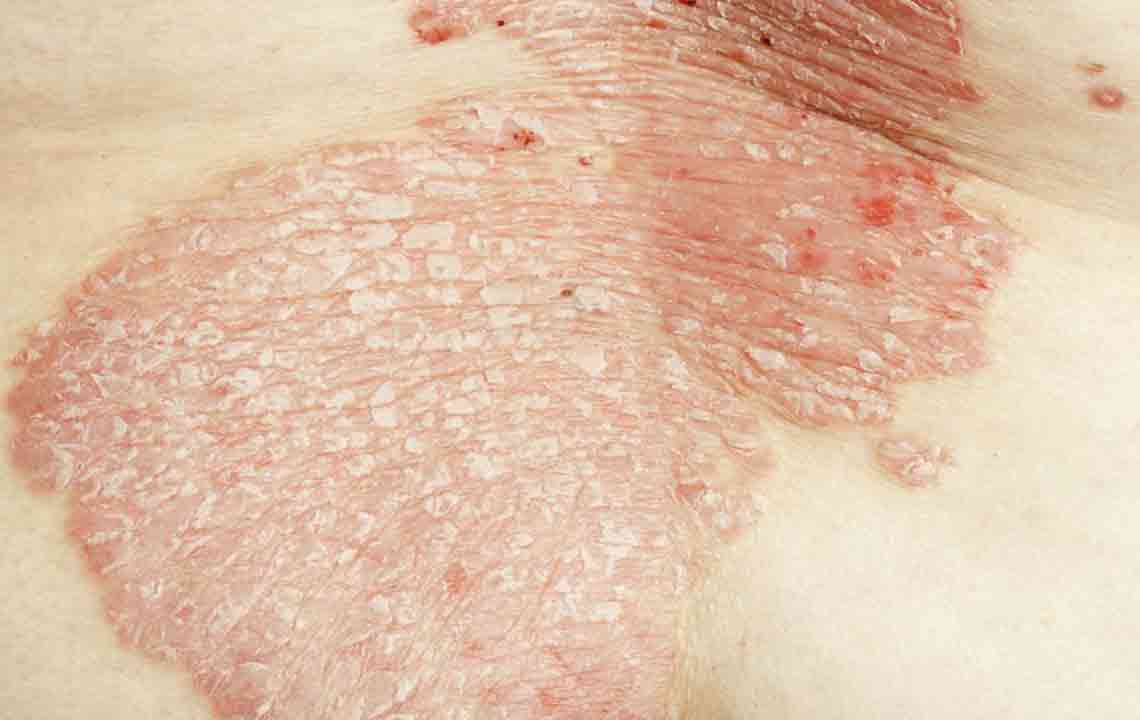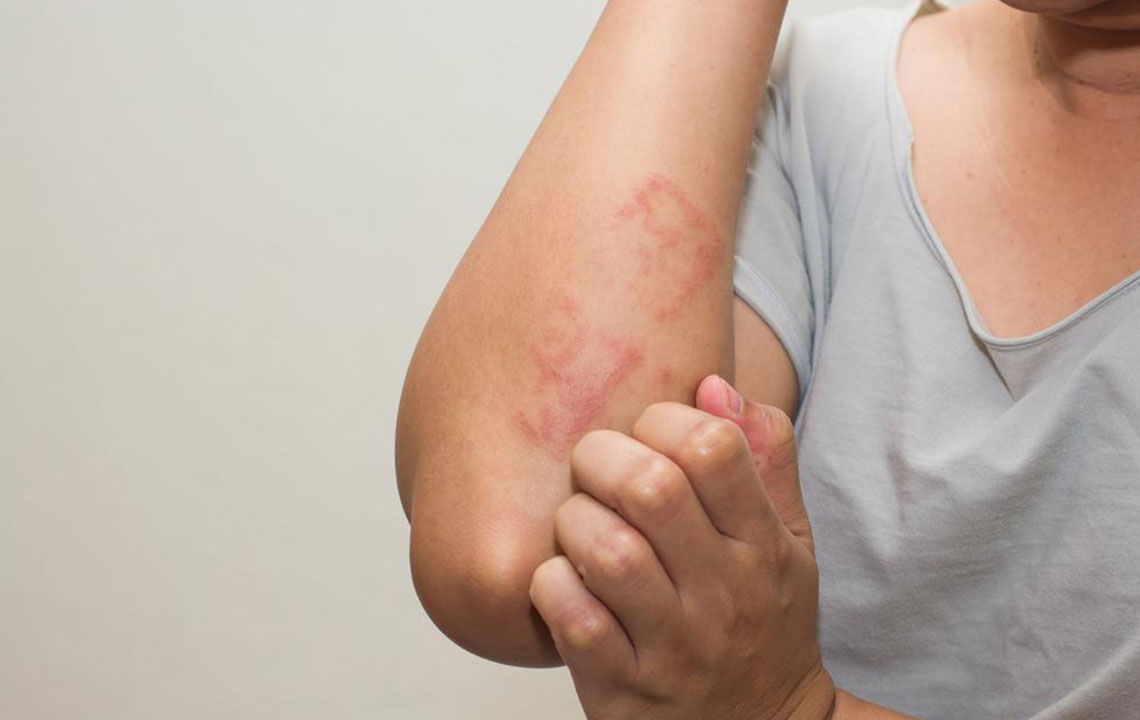Eczema: Introduction and Types
Eczema is a broad term used to describe different types of skin conditions. Eczema can also go by the name of dermatitis. The underlying symptom is inflamed, dry skin that can be easily irritated, resulting in an itchy and painful condition. Through persistent inflammation, the skin may harden in affected areas or even form a reddened crust. In quite severe cases you may also experience blistering or infection in the affected areas.

You may often recognize eczema as commonly affecting areas such as elbows, wrists, knees or backs of legs, although it can affect any other part of the body. Flare-ups are common and reoccurring. If you know of someone with eczema, there’s no need to clear a 10-meter radius around them, as it’s not contagious!
Although there are up to eight different types of eczema, the most commonly recognized forms are:
Atopic dermatitis (or atopic eczema)
This is a type of eczema that is considered a complex and chronic inflammatory skin disease, which you most likely would have inherited from your mom or dad. It is understood that a particular gene, called the FLG (filaggrin) gene, carries “data” for how your skin structure is created. This includes how responsive your skin is to foreign bacteria and substances that may create an allergic reaction. The FLG gene has been recognized as the major underlying factor of atopic dermatitis and was quite a medical breakthrough for scientists upon its discovery.
This FLG gene affects how your skin naturally hydrates itself and is often referred to as a “leaky skin barrier”. Any weakening of your skin structure can make you more susceptible to allergies. This is because foreign particles can much more easily break through your natural skin barrier. Those with atopic dermatitis also have an impaired immune system, affecting how your body defends itself against foreign invaders. Mot will have a reduced level of antimicrobial compounds that form part of your immune response.
More studies are needed to properly understand atopic dermatitis. Aside from the FLG gene findings, there are various suggestions of other causations, but until proven, they simply remain as a hypothesis. One such suggestion is called hygiene hypothesis, where it is thought that our modern day Western lifestyle is directly related to the rapid increase in eczema cases. This refers to the overuse of hand sanitizers and children growing up in ultra clean environments compared to how our parents grew up. Our parents were exposed to many different types of bacteria and microflora, which allowed them to naturally build a stronger immune system.
Atopic dermatitis commonly begins when you are an infant and ceases before your teenage years, but in some cases can also last through to adulthood. However, severity can often be worse in your younger years, as it can be hard for your little mind to understand the concept that itching will only increase inflammation!
While atopic dermatitis is hereditary, environmental factors can also affect you, as these are considered an irritant to already sensitive skin.
Contact dermatitis (or contact eczema)
Unlike atopic dermatitis, you don’t need to carry any gene from your parents to be affected by contact eczema. Pollen, cleaning products, particular cosmetics, environmental toxins or direct contact with any other foreign particles can cause inflammation to sensitive skin and trigger an allergic reaction. The list is limitless as to which substances may cause a reaction in some people.
Contact eczema can be a one-off event or it can be something that is chronic and long-standing. Regardless of the timeline, the allergen is what triggers your immune system to fight back. If you’re in constant contact with an allergen, excessive itching can create openings for bacteria to enter, leaving you at risk of infection.




